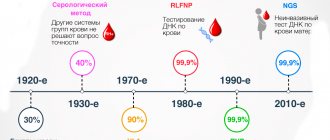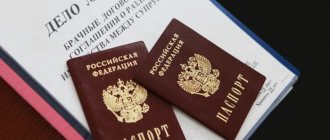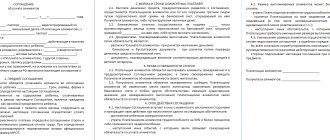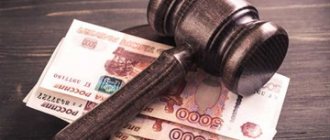There is a curfew for minors on the streets, in crowded places, and in other cultural or entertainment establishments. This means that the appearance of a child in these places unaccompanied by adults will result in punishment if the time limits of the law are violated. In this article, we will look at the conditions under which parents are held accountable for violating curfew for minor children, and what fines the guilty persons face.
"Not children's" time
To ensure the safety of children and adolescents, as well as to reduce the level of crime against minors, the legislation of the Russian Federation provides for a curfew. Those aged 16 and under 18 are allowed to be in public places no later than 23:00; children under 16 must be at home at 10:00 pm.
Night walks are only permitted when accompanied by a parent or other trusted adult who has reached the age of majority. Until what time is the curfew? The law establishes the extension of restrictions on the free movement of teenagers at night until 6 a.m. Local authorities have the right to reduce this time.
Which places are prohibited from visiting?
Let us remind you that in addition to the street at night, children are prohibited from visiting on their own:
- retail outlets and the area adjacent to them, entertainment centers;
- parks, stadiums and train stations;
- public catering outlets (especially those where the sale of alcohol is permitted);
- cultural and educational institutions;
- public transport stops.
It turns out that the curfew for teenagers applies to any public places and streets. Children are allowed to stay without their parents at night only at their own home or at the home of close relatives.
Legislation
Curfew orders are regulated by the Family Code and the Constitution of the Russian Federation. Since 2009, changes have been made to the Federal Law “On Basic Guarantees of the Rights of the Child in the Russian Federation”, defining the rules for minors being in public places at night. Children under 7 years of age should not be outside the home unaccompanied by an adult at any time of the day.
What is the curfew for minors? Persons under 18 years of age should return to their parents before 10 p.m. Each subject of the Russian Federation independently establishes forbidden places to visit in accordance with local regulations and the criminal situation. In addition, local governments may reduce restrictions at night based on the climatic and seasonal conditions of the area and the age of the persons to whom the law applies.
Punishment for violators
If a minor is caught, the police carry out a number of standard actions - establish the child’s identity, address, contact phone number, and collect information about parents or other responsible persons. If adults cannot be found, the teenager is sent to a specialized institution.
Adults who irresponsibly let a child go at the wrong time are subject to punishment. For an administrative offense, a fine ranges from 100 rubles to 5,000. In case of repeated violation, the amount increases. Not only the parents and guardians of the caught teenager will have to pay money to the state. Persons who organized an event with the participation of children and allowed them to remain unattended at night are also subject to punishment. The law did not bypass institutions that admit minor citizens at night. Enterprises face a fine of 10 to 50 thousand rubles.
Prohibited time in the regions of the Russian Federation
Focusing on the fundamental federal law, individual constituent entities of the Russian Federation independently establish time and age restrictions and the amount of monetary penalties for violating the law.
Saint Petersburg
On New Year's Eve, school graduations and official holidays, the curfew is lifted here. At the age of 16, teenagers, like younger schoolchildren, are not allowed to walk at night until 10 pm during the school period (from September to May) and until 11 pm in the summer. From 16 to 18 years of age, teenagers have the right to be in public places until 11 pm. Fines for parents start from a thousand rubles. In case of repeated violation, the amount increases to 5 thousand.
Komi Republic
The general procedure for observing the law on prohibited times applies here. Monetary penalties for irresponsible adults are more loyal - from 100 to 500 rubles.
Ulyanovsk region
There was a curfew in the region before. At the age of 16, children were prohibited from going outside unless accompanied by an adult. Since 2009, the age limit has increased to 18 years.
Curfew: 16 and older
St. Petersburg deputies are tightening the curfew for minors. According to the law adopted today in the first reading, children under 18 years old will not be able to be in public places after 23:00. Otherwise, their parents will face a fine of 1 to 5 thousand rubles.
In St. Petersburg, a kind of curfew has long existed. In any case, the local law “On Administrative Offences” requires parents to be punished for “connivance in the presence” of children under 16 years old unaccompanied by adults in public places from 23:00 to 6:00. This includes not only streets, parks, public transport, but also Internet clubs and cafes that sell alcohol. For violation, parents are subject to a fine of 500 to 2 thousand rubles.
However, federal law in Russia allows entities to change the standards for minors at will, this also applies to the amount of fines. Therefore, United Russia deputies Vitaly Milonov and Elena Kiseleva decided to introduce additional restrictions in St. Petersburg. In particular, designate places where people under 18 years of age cannot be with anyone at all, ever. In their proposed law, sex shops and drinking establishments “that are intended exclusively for the sale of alcoholic beverages” were completely banned.
The remaining “public places” are subject to partial restrictions. Children under 16 years of age will be prohibited from being on the streets without adults from 22:00 to 6:00 during school months (September 1 to May 31) and from 23:00 to 6:00 in the summer. For teenagers over 16 and under 18, the curfew will always start at 23:00. Exceptions are made only for New Year's Eve, official holidays and school graduations. That is, minors will still be allowed on the Scarlet Sails.
If a student is caught on the street, his parents will have to pay from 1 to 3 thousand rubles for the first time; for the second “drive” in the same year, the amount can be increased to 5 thousand. But now it is proposed to fine institutions that allow minors into their premises. inappropriate time. Individual entrepreneurs face a penalty of 3-5 thousand rubles, legal entities - 10-15 thousand. If the violation is recorded again, then the amount increases to 10 thousand and 20 thousand, respectively.
Vitaly Milonov explained his initiative by “the permissiveness and licentiousness that has reigned lately.” According to the deputy, the “liberal infection” and the migrants who arrived are to blame for this. “Our children can be in inappropriate institutions, and no one bears any responsibility for this. It is unacceptable! That guest worker, huckster who opened his own “shawarma” or other “tea house” will have to answer to the fullest extent of the law!” the deputy said from the podium. The introduction of new measures will be supported by any normal parent, of course, if he is “not some kind of minority,” Milonov thoughtfully noted.
True, colleagues of the most outrageous United Russia member from other factions immediately found obvious flaws in the document. At least in the fact that in principle there are no establishments where alcohol is served without snacks. Even the menu of wine bars, which Milonov called “smelly places,” contains more than just alcohol.
“And if a 15-year-old boy wants to get on the tram at 22:00, it turns out that his conductor or driver does not have the right to let him in, because they will be given a fine? The guy won’t make it home then!” asked the oppositionists. But Milonov was adamant and replied that riding trams or electric trains at night is, in principle, contraindicated for children. “When I was growing up, it was forbidden. Or do you think the state should give him the opportunity to continue to ride, be raped, robbed and beaten? We must protect children from their unreasonable actions, and not use their sacred liberal right to be slaughtered in the street,” he said.
Although the Socialist Revolutionary Alexei Kovalev noted that for some reason the law does not prohibit minors from riding a taxi: “We don’t have crimes in taxis, only in the subway! You can catch a private trader, like a migrant worker, but you can’t get on a minibus.”
By the way, St. Petersburg is considered the student capital. But apparently, thousands of freshmen will have to run home to avoid being fined. “My eldest son is in his first year at university; he recently turned 17 years old. He is taller than me and physically stronger. I vividly imagine how he should go on a date with a girl with his dad, because he will return later than 22:00,” joked Yabloko member Boris Vishnevsky.
“Institutions for the prevention of neglect and juvenile delinquency” will have to “identify” teenagers from the multitude of young people walking the streets.” There are only five such inspectors per district, the opposition notes. And even if some vigilantes suddenly join in the search for negligent children, it is unlikely that the police will come to any of their calls. After all, it is the police who, according to the new law, must draw up a report and hand over the child to the parents. “In our country, even when people are robbed or beaten, you don’t get a call from the police. Do you think they will come to find out someone’s identity?” - deputies complain.
“By passing this law, you are essentially saying that President Putin’s security policy has failed. Because this law says that it is dangerous to go out,” MP Maxim Reznik warned his colleagues from United Russia. It’s really dangerous, parliamentarians from opposition factions confirmed. And it is still unknown who is affected more: young people, old people or women. The idea was voiced that it is not necessary to combat this situation with individual prohibitions that are difficult to apply in life. Don't try to get rid of the effect, but try to find the cause. But this idea did not find a response from the parliamentary majority. 28 out of 50 deputies voted for the law in the first reading. Amendments to the second reading can be submitted before the New Year.
If the disputes continue, Milonov may well appeal to foreign experience. There is a curfew as such in many countries. For example, in the USA it varies depending on the city and state. In most places, children under 18 years of age are prohibited from being without an adult (and only a person over 21 years old is considered one) from 11:00 pm to 5:00 am. On weekends, the time allowed for walking is extended until midnight. Fines also vary. The police may well either simply bring the child home and limit themselves to a warning for the first time, or issue a fine for $100-500.
But some US cities have also introduced daytime curfews. This means that the minor will be in trouble if he is caught away from school during school hours. For example, in Los Angeles, the daytime curfew extends from 8:30 a.m. to 1:30 p.m. and applies to anyone under 18 years of age. And on Fridays and Saturdays, many US shopping centers have a special regime - children under 18 cannot come to the mall without an adult from 16:00. It turns out that the St. Petersburg minors were in some ways lucky.
Sofia Mokhova
The project was implemented using a grant from St. Petersburg.
Public attitude towards the law
Not all citizens supported the government's decision to introduce prohibited time for teenagers. According to the authorities, frivolous parents do not want to pay fines for children walking at night. Are there other reasons? The law was created to protect teenagers from negative factors affecting the mental, moral and even spiritual education of the younger generation. The crime rate should decrease, because most abuse of minors occurs in the dark.
However, according to parents, the law does not take into account various nuances. Some high school and first-year students work part-time after classes and often return home by midnight. Other young citizens attend sports and creative events that last until late. The ban on street travel at night includes the impossibility of traveling on public transport, which makes it difficult for teenagers to return home. Apparently, the curfew law requires modification to take into account such circumstances.
How does prosecution work?
Facts of curfew violation are recorded according to the general rules of the Code of Administrative Offenses of the Russian Federation - an administrative protocol is drawn up. The powers to compile it have been transferred to employees of the Ministry of Internal Affairs, the Commission on Minors' Affairs, and other authorized departments. Violations may be detected during document checks on the street, raids on entertainment venues and cultural institutions, etc.
If it is revealed that a child is unaccompanied by an adult, the following actions are taken:
- the identity and age of the child is established (from submitted documents, from words, etc.);
- the child is taken to the Ministry of Internal Affairs department or another institution until the parents or other legal representatives are notified;
- the child is given to the parents with a protocol drawn up;
- if there is a threat to the life and health of the child, he may be temporarily placed in a state special institution (for example, if the parents are intoxicated).
When drawing up a protocol, all the circumstances of the curfew violation, the reasons for leaving the child without adult supervision, and the presence of other violations of the law in the actions of the child or adults must be established. For example, children being outside at night may be associated with illegal activities (theft, car theft, etc.). In such cases, administrative or criminal detention is possible, in compliance with all the rules of the Code of Criminal Procedure of the Russian Federation and the Code of Administrative Offenses of the Russian Federation.
If the offense is minor, parents may be given a verbal reprimand without initiating an administrative case.
For example, if a child was in a movie theater at night in the presence of his parents, leaving him for a few minutes does not necessarily create a public danger or a threat to the safety of the minor. If there are no other complaints against the child and parents, an oral reprimand will be sufficient to prevent violations.
Prohibited times in other countries
It's not just Russia that enforces curfews. At age 16, teenagers and younger children must be accompanied by an adult at night in many civilized countries. The main goal of foreign legislation is to combat youth crime and child alcoholism. In the United States, in addition to the nighttime ban, there is also a daytime curfew. Schoolchildren should not be outside the educational institution during school hours. In France, the president introduced temporary restrictions for the entire population due to the dangerous situation. After a series of terrorist attacks in the capital, citizens are restricted from visiting crowded places and public events.










